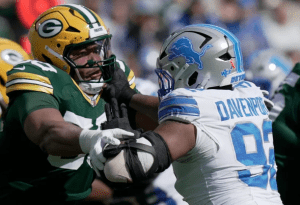Detroit Tigers set rotation for Yankees series news is more than just a schedule update—it’s a look into the heart of how this franchise is preparing for October. With Casey Mize lined up for the opener and Jack Flaherty taking the ball in Game 2, the Tigers made their intentions clear: trust a mix of homegrown arms and veteran leadership. But leaving the finale starter undecided? That’s where the intrigue begins.
In Detroit, every move is about grit, timing, and calculated hustle. This isn’t just a baseball decision—it’s a Motor City philosophy at work. Let’s break down what this rotation announcement means, why the finale is still in flux, and what it all signals for Detroit’s playoff journey.
Tigers Set Rotation for Yankees Series: Why Announcing Mize and Flaherty Matters
When the Detroit Tigers set rotation for Yankees series matchups, naming Casey Mize and Jack Flaherty wasn’t just about filling slots—it was about defining tone.
Casey Mize represents the rebuild coming full circle. Drafted first overall, he’s battled through injuries to emerge as a steady presence. Giving him the series opener signals confidence and continuity.
Jack Flaherty, the veteran pickup, represents balance. His experience in high-pressure games complements Mize’s energy. Slotting him second ensures Detroit has poise on the mound, even if Game 1 gets rocky.
Naming those two also gives the team rhythm: a young arm backed by a seasoned one. It’s a deliberate 1-2 punch that reflects Detroit’s identity—old and new working together.
Tigers Set Rotation for Yankees Series but Finale Still Up in the Air
The biggest headline isn’t who’s starting Game 1 or Game 2—it’s who isn’t yet locked in for the finale. That deliberate choice is a chess move.
Keeping the finale starter undecided gives Detroit multiple benefits:
Flexibility — They can adjust based on how the first two games unfold.
Health management — If someone in the rotation needs extra rest, Detroit isn’t overcommitted.
Opponent uncertainty — By not naming a starter, the Yankees can’t set their lineup as effectively.
Bullpen leverage — If Detroit decides to make it a bullpen game, keeping it unannounced maintains the element of surprise.
This isn’t indecision—it’s strategic patience. And in the postseason race, patience can be power.
Detroit Tigers Rotation Depth: Who Could Take the Finale?
So, if the Detroit Tigers set rotation for Yankees series but left the finale TBD, who’s realistically in the mix?
Tarik Skubal — Detroit’s ace, but his usage has been carefully managed. If the finale is crucial, don’t rule out Skubal coming in on short rest or in relief.
Matt Manning — The most likely candidate for a spot start. Manning has flashed but remains inconsistent. Detroit may be waiting to see how rested he is before committing.
Bullpen Day — If the first two games go deep into the bullpen, a finale bullpen game becomes risky. But if relievers are fresh, this could be an option.
Wildcard Option — Detroit could surprise everyone by slotting in a depth starter or recent call-up if matchups make sense.
Leaving the finale open doesn’t mean the Tigers are unprepared—it means they’re weighing every outcome.
Tigers Set Rotation for Yankees Series in Context of Playoff Positioning
The Yankees aren’t just any opponent—they’re a potential playoff rival. How Detroit handles this series rotation could preview their postseason approach.
Detroit’s choice to lean on Mize and Flaherty shows they trust balance over flash. But leaving the finale uncertain is also a test run: how comfortable are the Tigers in high-pressure games without clear structure?
Fans should view this series not just as three games—it’s a simulation of playoff baseball. Every inning is amplified. Every decision will be dissected. And the finale flexibility could become a weapon in October.
Detroit Context: Why This Feels Familiar
Detroit sports fans know what it means to play the long game. From the Pistons’ Bad Boys grinding out series to the Red Wings’ dynasty using depth lines, Detroit has always embraced resilience over flash.
The Tigers’ choice to leave the finale starter undecided mirrors that history. It’s the baseball version of waiting out your opponent, staying adaptable, and striking when the time is right. In Detroit, we call that smart hustle—it’s not about the prettiest move, it’s about the right move.
7 Key Factors to Watch in the Yankees Series Finale Decision
When the Detroit Tigers set rotation for Yankees series games, leaving the finale TBD was the headline. Here are the seven factors fans should keep an eye on:
Bullpen Workload in Games 1 & 2
Heavy use early may rule out a bullpen game later.Casey Mize’s Efficiency
If he goes deep into Game 1, it preserves arms for later.Flaherty’s Stability
A shaky Game 2 outing could push Detroit to hold Skubal for the finale.Tarik Skubal’s Rest Cycle
Detroit’s ace is the safety valve—but only if the schedule allows.Matt Manning’s Consistency
If he’s sharp in bullpen sessions, he could be the guy.Opponent Lineup Matchups
Detroit may wait to see how the Yankees stack lefties vs. righties.Playoff Implications
If the series impacts seeding, expect Detroit to throw everything at the finale.
Historical Comparisons: Tigers and Rotation Flexibility
This isn’t the first time Detroit’s rotation has sparked headlines:
2012 ALCS — Justin Verlander, Max Scherzer, Doug Fister, and Aníbal Sánchez formed one of the deepest rotations in franchise history. But Jim Leyland wasn’t afraid to shuffle order based on matchups.
2006 Playoffs — Kenny Rogers shocked the baseball world with his dominant postseason, proving the Tigers could rely on unexpected heroes.
1984 Championship Run — Sparky Anderson leaned on Jack Morris as the ace but kept the rest of the rotation flexible, matching arms to moments.
The Tigers set rotation for Yankees series in 2025 follows this same lineage: blend structure with adaptability.
Fan Perspective: The Detroit Hustle
Fans in Detroit get it—this isn’t about headlines, it’s about results. The Tigers aren’t just announcing starters—they’re sending a message. By keeping the finale open, they’re saying: “We’ll fight on our terms.”
That resonates in a city where people work double shifts, improvise fixes on the line, and make things happen no matter what. Detroit doesn’t just plan—it adapts. And so do the Tigers.










